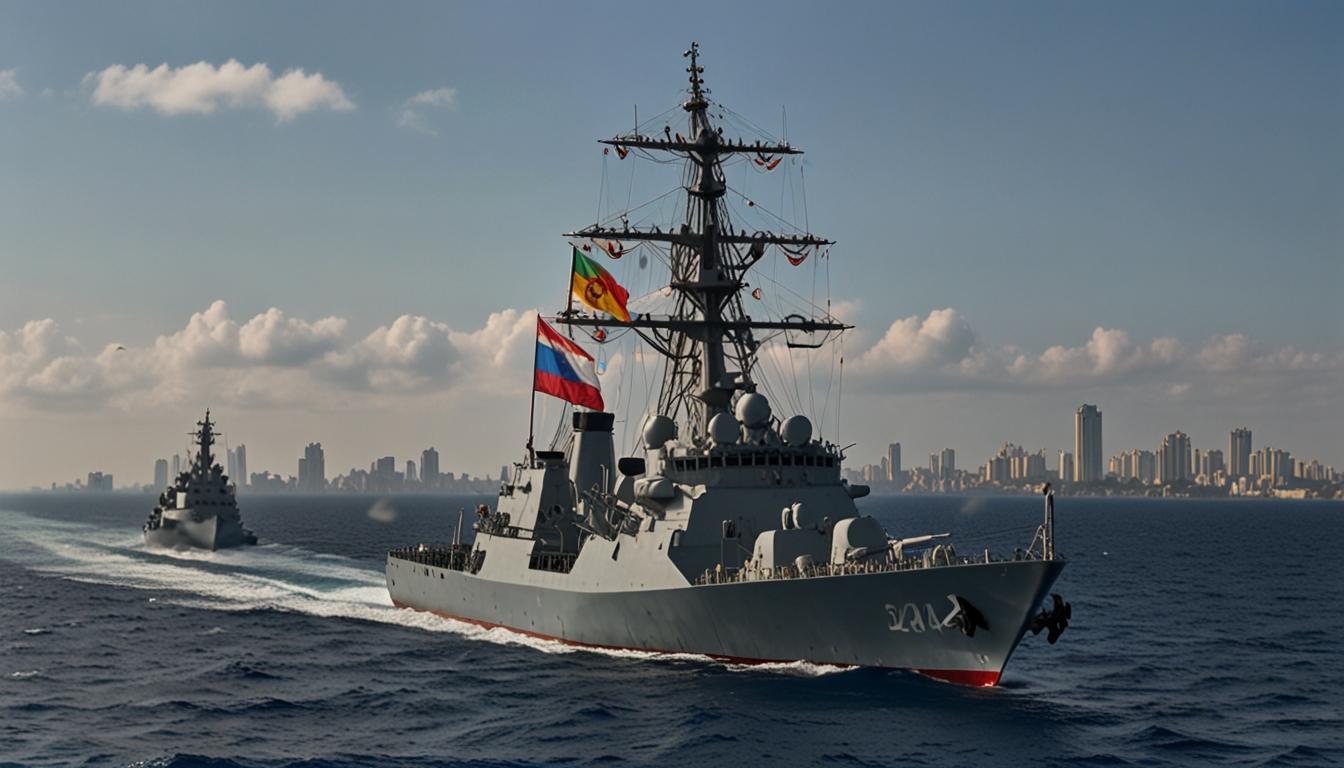A fleet of Russian warships, including a flagship frigate and a nuclear-powered submarine, entered Cuban waters for planned military exercises in the Caribbean. The arrival has implications for U.S. relations, potential Venezuela crisis, and strategic considerations in the Western Hemisphere.
A fleet of Russian warships reached Cuban waters on Wednesday, June 12, 2024, ahead of planned military exercises in the Caribbean. The fleet, led by a flagship frigate adorned with Russian and Cuban flags, crossed the mouth of Havana Bay and received a 21-cannon salute as sailors in dress uniforms approached the island. A nuclear-powered submarine was also expected to join the fleet.
The U.S. military anticipates the exercises will involve several Russian ships and support vessels, possibly stopping in Venezuela. This naval mission follows President Joe Biden’s authorization for Ukraine to use U.S.-provided weapons inside Russia, leading Russian President Vladimir Putin to suggest possible “asymmetrical steps” in response.
Experts, including Benjamin Gedan of the Wilson Center, view the fleet’s arrival as a reminder to the U.S. about the implications of meddling in another nation’s proximity, particularly regarding Western involvement in Ukraine. U.S. officials have downplayed any immediate threat, noting that intelligence indicates no nuclear weapons are onboard and considering the ships’ presence as routine.
The mission’s timing has raised speculations about its potential impact on Venezuela’s political landscape, particularly President Nicolás Maduro’s bid for a third term. Analysts, including Evan Ellis of the U.S. Army War College, suggest Maduro might exploit the situation to engineer a crisis to delay or cancel upcoming elections influenced by heightened regional tensions.
Venezuela, currently embroiled in a territorial dispute with Guyana over the Essequibo region, which is rich in oil deposits, could see this as an opportunity to bolster claims. The U.S. continues to support Guyana and recently conducted surveillance flights in response to Venezuelan threats. Vladimir Putin’s move demonstrates Russia’s ability to project power into the Western Hemisphere with the aid of regional allies, impacting U.S. strategic considerations.
Russian ships have occasionally docked in Havana since 2008, with previous visits stirring geopolitical tensions. On the day the fleet arrived, Russian Foreign Minister Sergei Lavrov hosted Cuban Foreign Minister Bruno Rodríguez in Moscow, reaffirming their alliance and discussing issues related to Ukraine.
Guyana’s Vice President Bharrat Jagdeo has stated that while the Russian fleet does not pose a direct threat, the country remains vigilant and is monitoring developments closely. The Russian naval exercises are expected to continue throughout the summer.
